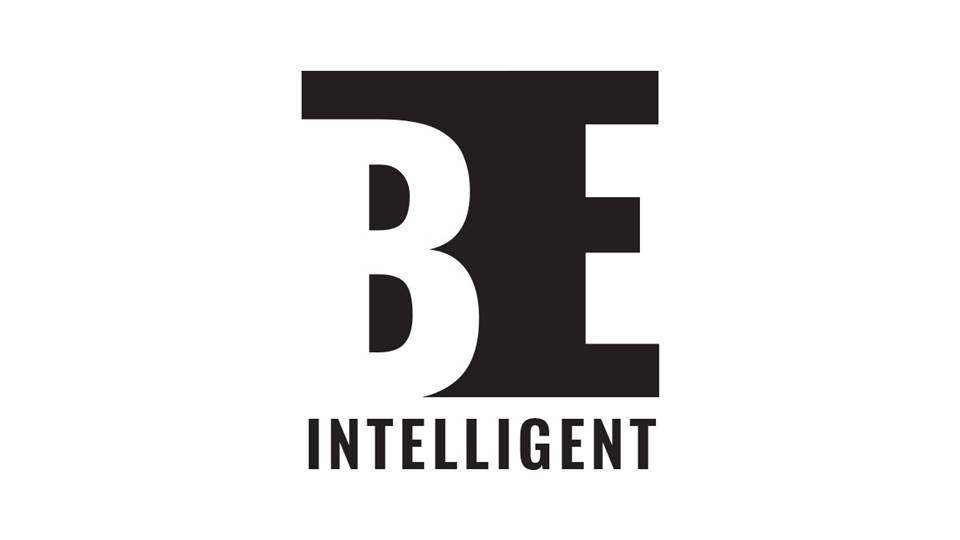The Communication for Good Manifesto

Sustainability and responsibility have never been so MOVING
It is estimated that advertising spending worldwide will surpass 560 billion U.S. dollars in 2019, representing a growth of roughly four percent compared with the previous year.
The “purposeful communication” is from 2017 a marketing trend: that year almost half of the Cannes Lions awards were handed out to “purpose driven” campaigns – VS 29% in the previous four years (source: Dentsu Aegis). This trend was confirmed in 2018 (15 of 27). And 2019 was a BOOM: Purpose was at the core in Talks and Works, often as empty buzzword and sometimes as an actual driver of change.
For companies, communicating their values through ‘purposeful’ campaigns is a great opportunity, but also a great challenge, in a climate of distrust, where 6 out of 10 consumers do not believe in a brand until they have seen concrete proof that the company kept its promises.
With the UN General Assembly (UNGA) focusing on the SDGs for the first time since the launch of Agenda 2030 in 2015, sustainable development is at the core of many corporate declarations. Starting from the financial sector. One hundred and thirty international banks with assets of 47 thousand billion dollars have signed the Principles for Responsible Banking document, a Magna Carta to face social and environmental issues.
The road, however, could still be largely covered, according to research by environmental associations. The Rainforest Action Network has shown that 33 banking giants – starting with US leading groups – have financed 1,800 fossil fuel companies in the last year with 654 billion, a figure that is growing and equal to more than two thirds of the total capital expenditure of the sector. Amazon Watch has denounced multimillion-dollar credits, from some of the same banks signatories to the Principles, granted to agro-food giants that take advantage of the decree of the Amazon.
According to Oxfam “there is a real risk that for many companies the sustainable development goals (SDGs) end up being not much more than another communication tool.” in other words, we should be aware that Using issues for good in advertising doesn’t mean using issues for the good of advertising
This is usually called ‘green washing’ and can have two declination: decoupling and attention deflection
The first (decoupling) refers to the doubling that occurs apparently satisfying the needs of the stakeholders without actually creating organizational changes. The second sees the deviation of attention from not appreciable performances in terms of sustainability through practices such as self-certifications and selective discrimination that highlight indicators with positive values about the environmental impact. (Suddaby and Greenwood, 2005; Marquis and Toffel,2012)
The importance of disseminating truthful and consistent information to help consumers make informed choices
In september 2019 ENI (Ente Nazionale Idrocarburi -National Hydrocarbons Authority) has been confirmed the only energy company among the selected companies as a participant in the Global Compact LEAD, an event within the UNGA led by the UN Global Compact, a voluntary initiative based on annual participant contributions up to 20.000$
Eni is a multinational Italian company with its base in the Italian capital, Rome, specializing in oil and gas. They operate in 79 countries worldwide and are ranked in the top 15 largest industrial organisations globally. The main focus areas of Eni’s work include refining/extraction, energy, chemicals and nuclear power. Eni has adopted a purposeful communication strategy plan that highlights their “corporate philosophy focused on the passion for technological innovation and progress, combined with values and integrity, respect for people and environmental protection” (Eni website)
The Italian company sees its commitment to compliance with the principles of the United Nations for responsible business rewarded proving that Eni is working towards environmental protection, social justice and renewable solutions, as in an article Forbes , saying ENI was the first company to develop biorefinery, high-quality biofuels and green diesel fuel. The article highlights the impacts of Eni’s groundbreaking sustainability work stating “the positive environmental impact of the initiative is undeniable”
Moreover, for 12 years running, Eni has been on the Dow Jones Sustainability World Index
Although, Eni has faced public scrutiny as a result of supposed unethical business practices such as bribing, corruption and cover ups (as for the Nigerian case), in addition to their connection to environmental dangerous techniques such as the natural gas extraction called fracking or oil spill disaster that in september 2017 contaminated Val d’Agri.
Corporations as well as some publishers, portrays an ethical and sustainable image of work practices and company identity. However, conflicting news articles make it difficult to decipher the truth behind the real brand identity and purpose of the brand.
How consumers could make conscious purchasing decisions, if some initiatives sponsor the company’s sustainability and other news and insights contradict it? This is the type of communication that is associated with the increase in skepticism
Alan Jope (Chief Executive Officer at Unilever) during the last Cannes Lions Festival provoked the adv industry saying :
“Please do not damage your industry by accepting briefs for brand which dont’ walk the talk on purpose. If there is no substance in what the brand wants to say, including a brand from Unilever, walk away, refuse the brief. We want to work with creative that teams share our values and passions, that believe we can change the world. By contrast we dont’ want to work with creative teams that have a track record of purpose washing producing anthemic messages with no substance lying on what the brand does”.
A study from the Economist shows that 68% of execs report companies are increasingly facing a backlash over inauthentic social initiatives and 83% of younger junior employees (below manager level) feel it is sometimes difficult to tell if a company cares about a social cause or is just trying to sell more products/services.
And one finding from a Harvard Business Review study, is that only 37% of executives believe the operations of their organisation are aligned with their purpose.
In such a climate of distrust, internal and external communication should improve.
Purpose washing to make consumers cry and buy is no longer an opportunity, is mostly a risk.
That’s why Be Intelligent Magazine is promoting the Be Intelligent Manifesto. Commitments initially written with input of several professionals including Nicola Giuggioli, CEO of Eco-Age and Geo Ceccarelli CEO General Manager at Breakfastforcontent e Chief Creative Officier in Gruppo Roncaglia. It was then revised with inputs from independent intellectuals, students and activists. Our hope is that advertisers from all over the world will read the Manifesto, sign it and make awesome creative works with it!
We are seeking feedback and signatures from advertisers professionals who commit to using their Talent to support the movement, who commit to practicing their creative work more sustainably and to partner with other stakeholders to meet the 2030 agenda for sustainable development
The Manifesto subscribers will be announced on Jan, 2020.
Popular articles
-
 Communication For Good. 2019 Italy Trends September 29, 2019 The research conducted by The Easy Way and EG Media…
Communication For Good. 2019 Italy Trends September 29, 2019 The research conducted by The Easy Way and EG Media… -
 There’s no room for gender inequality at IKEA November 19, 2018 When we first hear of IKEA the main image that…
There’s no room for gender inequality at IKEA November 19, 2018 When we first hear of IKEA the main image that… -
 Gender Inequality Storytelling through images and the role… March 5, 2019 Stefano Stranges is a photographer from Turin, born in 1978.…
Gender Inequality Storytelling through images and the role… March 5, 2019 Stefano Stranges is a photographer from Turin, born in 1978.… -
 Branded Content & Entertainment: how does it work for… September 14, 2017 The reduction in consumer attention towards traditional advertising makes it…
Branded Content & Entertainment: how does it work for… September 14, 2017 The reduction in consumer attention towards traditional advertising makes it… -
 7 ways to view the new Gillette ad #toxicmasculinity January 28, 2019 A campaign to revitalize an ancient payoff Bad PR is…
7 ways to view the new Gillette ad #toxicmasculinity January 28, 2019 A campaign to revitalize an ancient payoff Bad PR is… -
 Do Goodvertising and Purposeful Communication need a Code of April 12, 2019 Philanthropy, CSR and purposeful communication have at least one…
Do Goodvertising and Purposeful Communication need a Code of April 12, 2019 Philanthropy, CSR and purposeful communication have at least one… -
 Discover more about cause related marketing 2.0 thanks to… March 25, 2019 When a company has difficulty in finding its ‘good side’…
Discover more about cause related marketing 2.0 thanks to… March 25, 2019 When a company has difficulty in finding its ‘good side’… -
 The Communication for Good Manifesto October 21, 2019 Sustainability and responsibility have never been so MOVING It is…
The Communication for Good Manifesto October 21, 2019 Sustainability and responsibility have never been so MOVING It is… -
 Creactivism | Advertisers against harmful products October 30, 2018 In a recent article on the Creative Review, Naresh Ramchandani,…
Creactivism | Advertisers against harmful products October 30, 2018 In a recent article on the Creative Review, Naresh Ramchandani,… -
 Purpose Brands are determined to take a stand November 23, 2018 Since 2017, corporate organizations took the lead (VS. Non-Profit) in…
Purpose Brands are determined to take a stand November 23, 2018 Since 2017, corporate organizations took the lead (VS. Non-Profit) in… -
 7 persuasive strategies Branded Entertainment uses to make… January 28, 2019 long term consumers audience clear goals transparency storytelling measurement expertise
7 persuasive strategies Branded Entertainment uses to make… January 28, 2019 long term consumers audience clear goals transparency storytelling measurement expertise -
 8 out 10 of consumers expect that CEOs share their own… November 16, 2018 8 out 10 of consumers expect that CEOs share their…
8 out 10 of consumers expect that CEOs share their own… November 16, 2018 8 out 10 of consumers expect that CEOs share their… -
 Purposeful Communication: Opportunity or threat? October 29, 2018 One of the most important key components of a brand’s…
Purposeful Communication: Opportunity or threat? October 29, 2018 One of the most important key components of a brand’s… -
 Wandering in the city May 29, 2019 Those pictures were taken in the middle of a walk…
Wandering in the city May 29, 2019 Those pictures were taken in the middle of a walk… -
 Cannes Lions Branded Entertainment 2017 September 5, 2017 Only 5 years ago the ‘Branded Content & Entertainment’ was…
Cannes Lions Branded Entertainment 2017 September 5, 2017 Only 5 years ago the ‘Branded Content & Entertainment’ was…